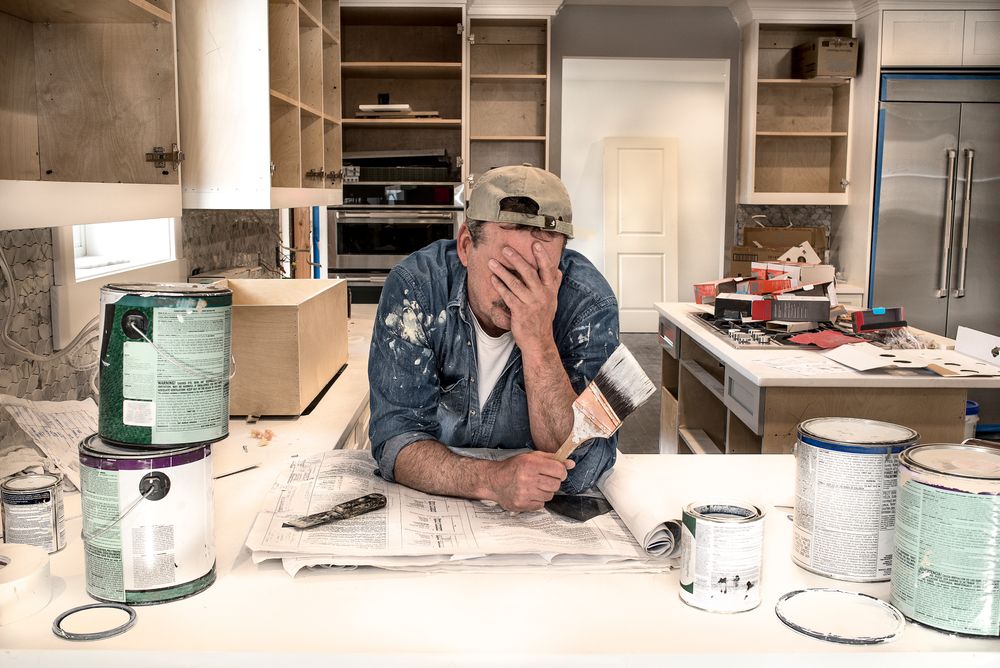
When it comes to finding a home with character and the opportunity to put your own stamp on it, a fixer-upper can be a treasure trove of potential. For many homebuyers, the allure of transforming a diamond in the rough into the jewel of the neighborhood is irresistible. But not all fixer-uppers are created equal. To ensure your renovation dream doesn’t turn into a money pit nightmare, it’s crucial to distinguish between a property’s promise and its pitfalls.
In this article, we’ll guide you through the process of identifying a fixer-upper that offers the best of both worlds: the chance to create your dream home without breaking the bank. From structural integrity to location, and from renovation scope to financial sense, we’ll explore what you need to consider before taking the plunge.
Evaluating Structural Soundness
The foundation of any home, quite literally, is its structure. When considering a fixer-upper, it’s essential to assess the structural integrity of the property. Issues like a cracked foundation, sagging roof, or termite damage can be costly to repair and may not be immediately apparent. Before you fall in love with a charming fixer-upper, hire a professional inspector to give the property a thorough check-up.
Look out for signs of uneven floors, doors that won’t close properly, or visible cracks in the walls. These can be indicators of deeper structural problems. While some structural issues can be fixed, they often come with a hefty price tag and can significantly extend the timeline of your renovation project. Knowing what you’re dealing with upfront can save you from headaches down the road.
Location, Location, Location
When you’re caught up in the excitement of a potential home renovation project, it’s easy to overlook the importance of location. However, the old real estate adage holds true: location is everything. The right neighborhood can add immense value to your property after renovations are complete. Conversely, a less desirable location can limit your home’s resale potential, regardless of how impressive the renovations are.
Consider the neighborhood’s growth prospects, the quality of local schools, proximity to amenities, and overall safety. Additionally, check for any zoning laws or historical district regulations that could impact your renovation plans. A perfect fixer-upper is not just about the house itself, but also about the community that surrounds it.
Assessing the Renovation Scope
Understanding the scope of the necessary renovations is vital when selecting a fixer-upper. Some homes might need cosmetic updates, such as paint and new fixtures, while others require a complete overhaul, including electrical, plumbing, and structural work. Be realistic about your skill level, budget, and the amount of time you can commit to the renovation process.
If you’re not experienced in home improvement, it’s important to know which projects you can tackle yourself and which will require professional help. It’s also worth considering the return on investment for each renovation project. While a new kitchen or bathroom can significantly increase a home’s value, other renovations might not pay off in the long run. Make sure the numbers add up before moving forward.
Financing Your Fixer-Upper
Financing a fixer-upper can be more complex than purchasing a move-in-ready home. Traditional mortgages may not cover homes that require extensive work, so you might need to look into alternative financing options. One popular choice is the FHA 203(k) loan, which allows buyers to finance the purchase and renovation of a home with a single mortgage.
It’s also important to have a clear budget for both the purchase price and the renovations. Keep in mind that renovation projects often go over budget due to unforeseen complications, so it’s wise to have a financial cushion. Make sure to account for the cost of permits, materials, labor, and any temporary housing you may need while the work is being completed.
The Emotional Investment
Buying and renovating a fixer-upper is not just a financial investment; it’s an emotional one as well. The process can be stressful, time-consuming, and full of surprises. Before you commit, consider whether you have the patience and perseverance to see the project through to completion.
Be prepared for the highs and lows that come with renovating a home. The satisfaction of tearing down a wall or choosing new fixtures can be thrilling, but there will also be days filled with dust, noise, and unexpected delays. It’s important to stay focused on the end goal and remember why you embarked on this journey in the first place.
Finding the perfect fixer-upper is a balance of head and heart. By conducting a thorough evaluation of the structural integrity, location, renovation scope, and financial aspects, you can make an informed decision. Remember that while the potential of a fixer-upper can be exciting, it’s equally important to be aware of the pitfalls that could turn your dream project into a daunting task.
Whether you’re a seasoned DIYer or a first-time homebuyer, approach the process with patience, due diligence, and a clear vision. With the right property, a realistic plan, and a bit of grit, your fixer-upper can become the home of your dreams. Happy house hunting!
